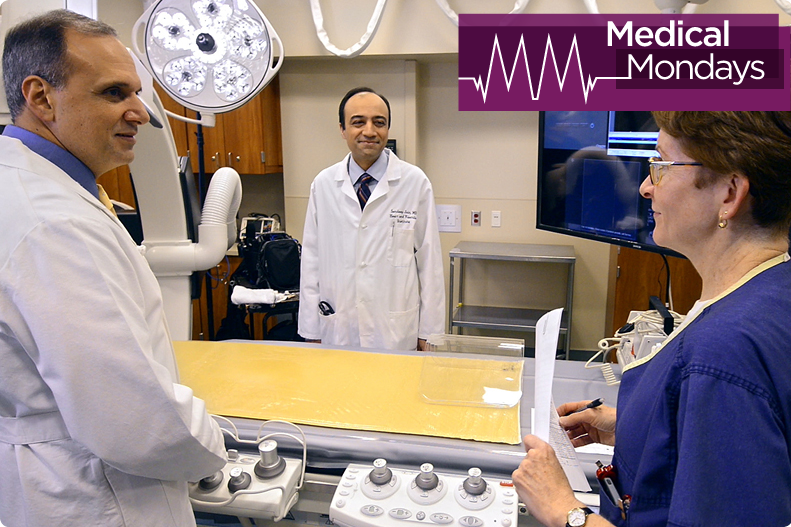Atrial fibrillation, or AFib, is a common kind of irregular heartbeat that affects millions of people in the United States. If left untreated, AFib can lead to stroke, so it’s important to understand your symptoms and when you should talk to your doctor.
Here, you can learn about:
- The signs and symptoms of atrial fibrillation
- How stress affects your heart
- Why regular check-ups are good for your heart health
- When heart palpitations are normal, and when to talk to your doctor
- What to expect if you need an EKG
- The many causes of chest pain
- Heart problems in women
-
Atrial Fibrillation: What You Need to Know
Millions of people in the United States have atrial fibrillation (AFib), a common heart condition caused by uneven electrical signals in your heart. If left untreated, the condition can lead to a stroke, so it’s essential to talk to your doctor if you experience symptoms. To safeguard your health, read more to learn about the common risk factors, symptoms, and treatment options for AFib.Learn More
-
Infographic: 6 Deadly Heart Disorders and Conditions
Most people have had heart palpitations, been lightheaded, or felt short of breath at one time or another. Sometimes, this is nothing to worry about—but sometimes, these symptoms can be signs of serious, life-threatening heart problems. Learn about the signs and symptoms of six major heart problems below.Learn More
-
How Does Everyday Stress Impact Your Heart?
Everyday stress – like sitting in bumper-to-bumper traffic, cramming for a final exam, or building up a never ending to-do list — can affect your body in different ways. Some people may develop headaches, stomachaches, backaches, or ulcers, while some can even have flare-ups of IBS or asthma symptoms. Unfortunately, stress is also linked to an increased risk of heart disease. Read more to find ways to safely deal with stress.Learn More
-
Caring for Your Heart – Why Regular Checkups Are Important
Even if you don’t currently have a vascular condition, getting a heart screening is still an important part of a healthy lifestyle. The best way to prevent heart disease is to detect and manage major risk factors, like high blood pressure, high total cholesterol, and high blood glucose. Read more to learn about various tests to expect at a heart checkup and the importance of keeping an eye on your heart.Learn More
-
What Are Heart Palpitations And Should You Worry?
If you’ve ever felt like your heart was skipping a beat or pounding out of your chest, you know how unnerving it is. Although they are usually nothing serious and will resolve on their own, they can also be caused by serious health problems. For this reason, it is best to contact your doctor if you experience a new heart palpitation. Read more to discover additional symptoms you should watch for and various ways to prevent non-serious palpitations.Learn More
-
What to Expect When You Get an EKG
An electrocardiogram (EKG) is a heart test used to help doctors evaluate your heart health. By making a recording of the electrical activity of your heart, your doctor can see if you have muscle damage or electrical problems, therefore allowing proper treatment. Read more to learn what to do to prepare for your exam, what to expect, and how to proceed afterward.Learn More
-
Chest Pain: Why Does My Heart Hurt?
Pain in your chest does not necessarily point to a heart problem. It may stem from anything from a cracked rib to an issue with an entirely different organ. However, even the most minor twinge of chest pain should be checked to ensure it’s not the sign of a major health condition. Read more to discover what causes chest pain and how to discuss it with your doctor.Learn More
-
Women and Heart Disease: Know the Signs
One out of three women is affected by coronary heart disease every year, making it the number one killer of women. While the risk of heart disease increases with age and menopause, younger women are also at risk for heart disease, too. Read more to discover the signs and symptoms so you can be better prepared to talk with your doctor about your risk.Learn More








